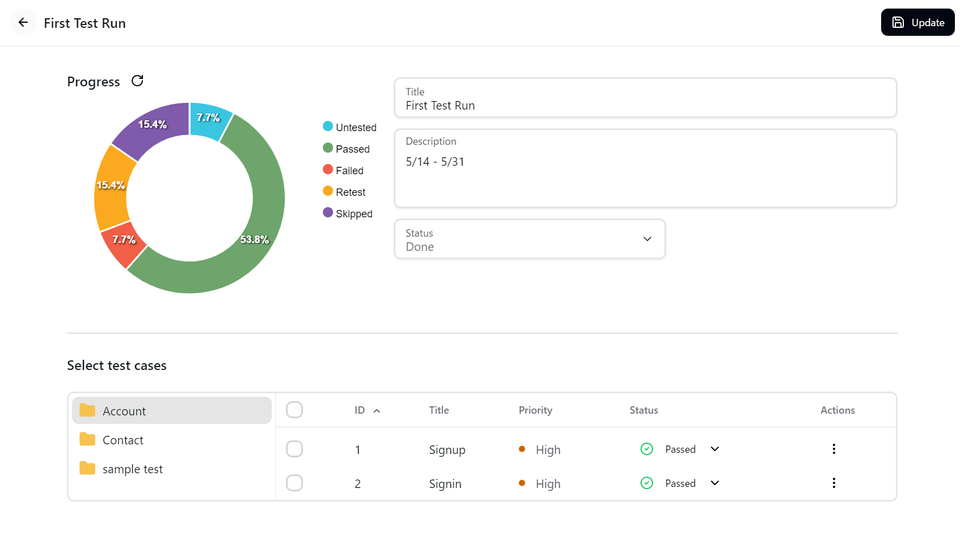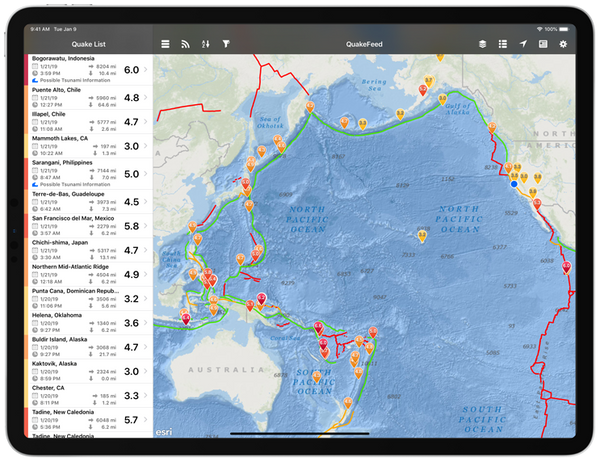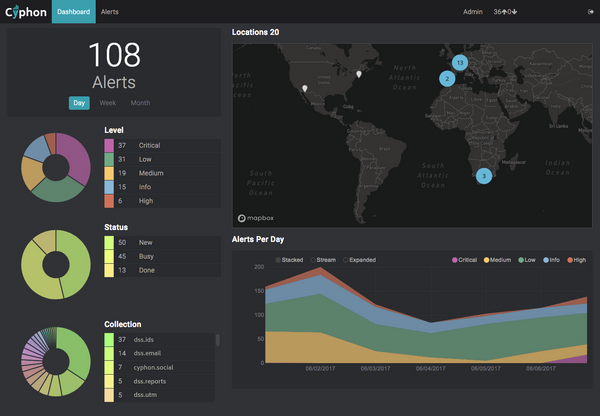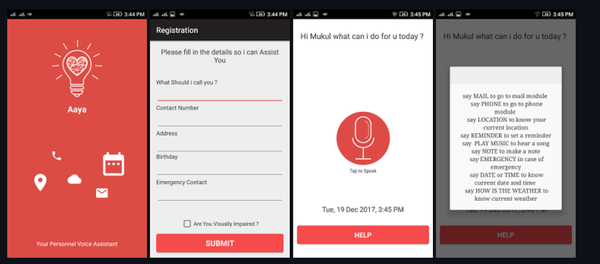Open Source Incident Management Tools 2025: Top 15 Platforms to Save Lives & Reduce Crisis Response Time (Disaster, Healthcare, CyberSecurity)
Transform crisis response with open-source incident & case management tools. Save lives, reduce costs, and streamline operations across healthcare, cybersecurity, and disaster management.
Table of Content
As a doctor who's witnessed firsthand how chaos unfolds during medical emergencies, and a developer who's spent years championing open-source solutions, I've seen the transformative power of robust incident and case management systems.
Whether it's a patient's sudden cardiac arrest or a server breach at 3 AM, having structured response mechanisms can mean the difference between disaster and resolution.
What is Incident and Case Management?
Incident Management is the systematic approach to identifying, analyzing, and correcting hazards to prevent future occurrences. It's your emergency response protocol – whether that's handling a cybersecurity breach, managing a patient safety incident, or responding to natural disasters.
Case Management, on the other hand, focuses on coordinating care and services for individuals over time. Think of it as the long-term patient journey mapping, ensuring continuity, tracking progress, and optimizing outcomes through structured workflows.
Why This Matters More Than Ever, Especially NOW!
In our interconnected world, crises don't announce themselves. They strike when you're least prepared. The 2010 Haiti earthquake taught NGOs worldwide that without proper incident tracking, rescue efforts become duplicated, resources wasted, and lives lost.
Similarly, in healthcare, a medication error that isn't properly documented and analyzed can repeat across different departments, affecting multiple patients.
The beauty of incident and case management lies in its universality. From cybersecurity teams tracking zero-day exploits to social workers managing complex patient cases, these systems provide the structure that human memory alone cannot sustain.
Key Benefits That Transform Operations
1- Real-time Response Coordination
When Hurricane Maria hit Puerto Rico, organizations with digital incident management systems could track resource allocation, personnel deployment, and victim locations in real-time, dramatically improving response efficiency.
2- Pattern Recognition
Healthcare facilities using incident management systems have reduced patient falls by 40% by identifying common factors, wet floors during specific shifts, inadequate lighting, or staffing shortages.
3- Accountability and Compliance
Financial institutions maintain regulatory compliance by documenting every security incident, ensuring audit trails meet SOX and GDPR requirements.
Resource Optimization
NGOs can predict resource needs during disaster response by analyzing historical incident data, ensuring the right supplies reach the right places at the right time.
Diverse Use Cases Across Industries
1- Cybersecurity:
When a hospital's EMR system gets hit by ransomware, incident management tracks the breach timeline, affected systems, containment measures, and recovery progress, all while maintaining HIPAA compliance.
2- Disaster Response
During the 2023 Turkey-Syria earthquake, international rescue teams used case management systems to track survivor locations, medical needs, family reunification efforts, and ongoing care requirements.
3- Healthcare Quality Improvement
A pediatric ward implements incident management to track and analyze medication errors, leading to redesigned workflows and significantly reduced adverse events.
4- Software Development
Tech companies use incident management to track bugs from discovery through resolution, improving product quality and customer satisfaction.
Security and Cybersecurity Integration
Modern incident management systems are security-first by design. They incorporate multi-factor authentication, encrypted communications, and detailed audit trails. For healthcare organizations, this means protecting patient data while maintaining compliance with regulations like HIPAA and GDPR.
During penetration testing, these systems prove invaluable for tracking vulnerabilities, coordinating remediation efforts, and documenting security improvements. Cybersecurity teams can simulate attacks, track incident response times, and continuously improve their defensive posture.

The Critical Importance of Implementation
Without proper incident and case management, organizations operate in reactive chaos. Emergency responders arrive at disaster sites without knowing what resources are already deployed. Healthcare teams repeat the same mistakes because incidents aren't properly documented and analyzed. IT departments struggle with recurring outages because root causes remain unidentified.
The cost of not implementing these systems far exceeds the investment required. Consider the 2017 WannaCry ransomware attack that affected the UK's NHS, causing 19,000 canceled appointments and costing millions in recovery efforts. Proper incident management could have contained the spread and minimized impact.
Healthcare Sector: Where Lives Depend on Structure
In healthcare, incident and case management isn't just operational efficiency, it's patient safety. As a doctor, I've seen how a well-structured incident reporting system can prevent medication errors, reduce hospital-acquired infections, and improve patient outcomes.
When a nurse reports a near-miss medication mix-up through the incident management system, the entire organization learns and adapts. Case management ensures that patients with complex conditions, like diabetics with multiple comorbidities, receive coordinated care across specialists, pharmacies, and home health services.
During the COVID-19 pandemic, hospitals with robust case management systems could track patient flow, resource allocation, and treatment outcomes more effectively.
Electronic incident reporting systems have reduced adverse events by up to 30% in some facilities by enabling systematic analysis and prevention strategies.
The integration of incident management with electronic health records creates a comprehensive safety net that protects both patients and healthcare workers.
Open-Source Solutions: Democratizing Crisis Management
Here's where my passion for open-source truly shines. Open-source incident and case management solutions democratize access to life-saving tools. When I first started advocating for open-source healthcare solutions, many dismissed it as idealistic.
Today, we see NGOs in developing countries using tools like TheHive for cybersecurity incident response and OpenEMR for patient case management.
When disaster strikes, literally, organizations can tap into global expertise. During the 2023 earthquake response in Turkey, developers worldwide contributed to improving crisis management tools in real-time.
Why Open-Source Matters:
- Cost-Effective Deployment: NGOs with limited budgets can implement enterprise-grade solutions without licensing fees
- Customization Freedom: Developers can modify systems to meet specific organizational needs
- Transparency and Trust: Code review ensures security and privacy compliance
- Rapid Innovation: Community-driven development accelerates feature development
- Community Support Ecosystem: The open-source community provides invaluable peer support.
- Collaborative Features: Open-source platforms often excel in collaborative features because they're built by communities that understand cooperation.
Multi-organization incident response becomes seamless when everyone uses compatible, transparent systems.
Real-World Impact: From Earthquakes to Everyday Emergencies
I've personally witnessed the power of these systems during humanitarian missions. In refugee camps, case management systems help track medical histories across borders.
During natural disasters, incident management coordinates rescue efforts between multiple agencies. The common thread? Structure saves lives.
Consider how the Red Cross uses open-source tools to manage disaster response cases. When Hurricane Harvey hit Texas, volunteers could access real-time incident data, coordinate shelter placements, and track missing persons through web-based case management systems.
Why You Need This Now
Whether you're running a startup, managing a hospital department, or coordinating disaster relief, incident and case management systems are no longer optional – they're essential infrastructure. They transform chaos into coordination, confusion into clarity, and reaction into prevention.
The convergence of healthcare, cybersecurity, and disaster management demands integrated solutions. Open-source platforms offer the flexibility, security, and community support needed to build resilient systems that adapt to evolving challenges.
As we face increasing cybersecurity threats, climate-related disasters, and complex healthcare needs, investing in incident and case management isn't just smart – it's responsible leadership. The question isn't whether you can afford these systems, but whether you can afford not to implement them.
Your next crisis is already planning to strike. Will you be ready?
Top Open-source Incident and Case Management Solutions
1- DFIRTrack
DFIRTrack is a powerful open-source web application built on Django with PostgreSQL, specifically designed for managing large-scale cybersecurity incidents involving multiple compromised systems.
Unlike traditional case-based tools used by CERTs and SOCs for daily operations, DFIRTrack excels in handling advanced persistent threat (APT) cases where hundreds of systems may be affected simultaneously.
You can read more about its full features here.
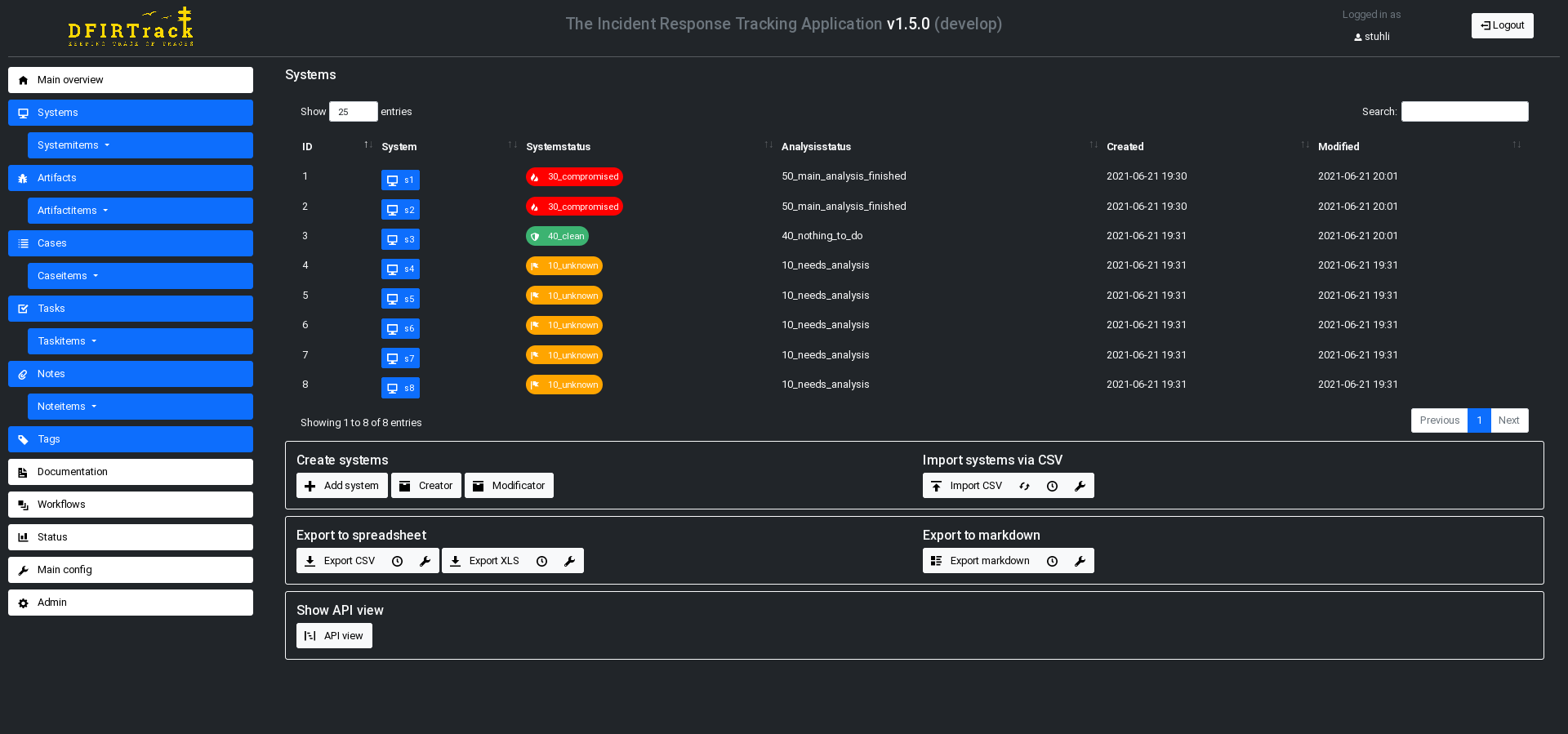
2- KANVAS
KANVAS is an intuitive desktop-based incident response case management tool built with Python, designed to eliminate the chaos of spreadsheet-based investigations.
The app provides a unified workspace that consolidates all IR workflows into a single interface, allowing investigators to manage cases efficiently without constantly switching between multiple applications
Features
- Easy Setup: Works directly with familiar SOD spreadsheets - no complex installation required
- Open-Source: Free Python-based tool with full community access and customization
- Simple Configuration: Minimal setup needed - just add your API keys for threat intelligence
- All-in-One Workspace: Manage timelines, system data, and investigations in a single interface
- Smart Visualization: One-click attack chain and timeline diagrams for clear incident overview
- Threat Intelligence: Built-in lookups for IPs, domains, hashes, and ransomware victim verification
- Multi-User Collaboration: Share files safely with automatic file locking to prevent conflicts
- Instant Sanitization: Clean sensitive data with one click for secure sharing
- Export Ready: Generate reports and presentations directly from visualizations
- Security Frameworks: MITRE ATT&CK mapping and VERIS reporting built-in
3- Incidental

Incidental is a lightweight, MIT-licensed incident management system built with modern web technologies, offering essential features like incident creation, assignment, acknowledgment, and resolution tracking.
It is an ideal choice for small to medium organizations seeking a straightforward, self-hosted solution for managing IT incidents and support tickets without complex enterprise overhead.
It is written using Node.js, Next.js, PostgreSQL, and React.
4- Incidental
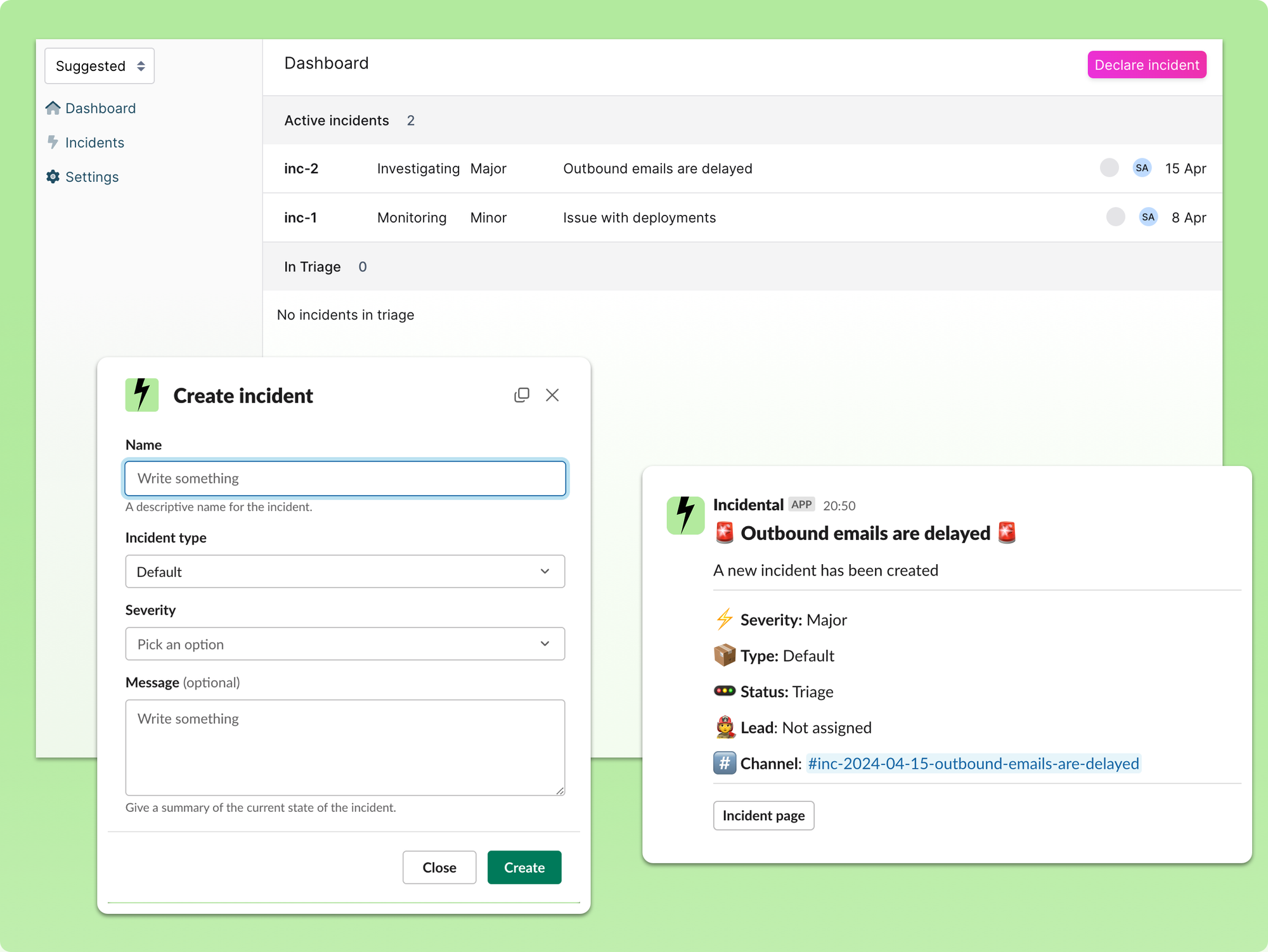
Incidental is a powerful yet straightforward open-source platform that transforms how organizations handle incidents. Built for modern teams, it offers a centralized command center where you can effortlessly create, track, assign, and resolve incidents from a single intuitive interface.
Whether you're managing IT outages, security breaches, or operational disruptions, Incidental streamlines your entire incident response workflow, ensuring nothing falls through the cracks while keeping your team aligned and informed throughout the resolution process.
Features
- Self-hosted and free
- Easy to install and setup using Docker
- ChatOps: Declare and manage your incidents all within your Slack workspace
- Web UI: Easy-to-use web interface to manage your incidents
- Custom Severities: Define severity levels that match your organization's needs
- Custom Fields: Add and track incident-specific data points
- Custom Incident Types: Categorize incidents according to your operational model
- Custom Roles: Define roles and responsibilities for your incident response team
- Status Pages: Display the current status of your incidents to your stakeholders with customizable status pages
- Custom Workflows: (WIP) Automate your incident response processes
5- Response
Response is Monzo's open-source Django app that reduces incident stress by automating communications, coordination, and reporting for engineering teams.
6- TheHive
TheHive is a free powerful, open-source cybersecurity incident response platform designed for modern security operations centers.
7- ArkCase
ArkCase is a leading open-source platform designed to revolutionize case management and IT modernization initiatives. Built on years of enterprise experience, it accelerates implementation while dramatically reducing costs for organizations worldwide.
8- UnitTCMS

UnitTCMS is an open source test case management system. The application is free and designed for self-hosted use. It can be used in environments with strict security requirements.
UniTCMS's Features
- Project-based organization for test cases and test runs
- Dashboard with real-time project status overview
- Monitor test case progress and types at a glance
- Create folders within projects for organized structure
- Modern, intuitive user interface for easy test case creation
- File attachments for detailed test case documentation
- Team-wide information sharing capabilities
- Reuse defined test cases across multiple test runs
- Efficient test cycle execution and management
- Visual status monitoring for test runs and projects
- Add/remove project members with ease
- Role-based access control system
- Three permission levels: Manager, Developer, Reporter
- Detailed role assignment and permission settings
- Free, open-source solution
- Secure on-premises deployment options
- No cloud security concerns
- Modern interface without frequent page reloads
9- OCM
OCM is a user-friendly, browser-based case management system designed for not-for-profit legal services. Available under GPL v2 license with optional commercial hosting support.
10- Security Onion
Security Onion is a free and open platform for threat hunting, enterprise security monitoring, and log management. It includes our own interfaces for alerting, dashboards, hunting, PCAP, detections, and case management.
It also includes other tools such as osquery, CyberChef, Elasticsearch, Logstash, Kibana, Suricata, and Zeek.
11- Ballerine (Risk Management System)
Ballerine is an Open-Source Risk Management Infrastructure that helps global payment companies, marketplaces and Fintechs to automate their decisions for merchant, sellers and users throughout the customer lifecycle.
From account-opening (KYC, KYB), underwriting, and transaction monitoring, using a flexible rules & workflow engine, 3rd party plugin system, manual review back office, and document & information collection frontend flows.
12- Flowintel
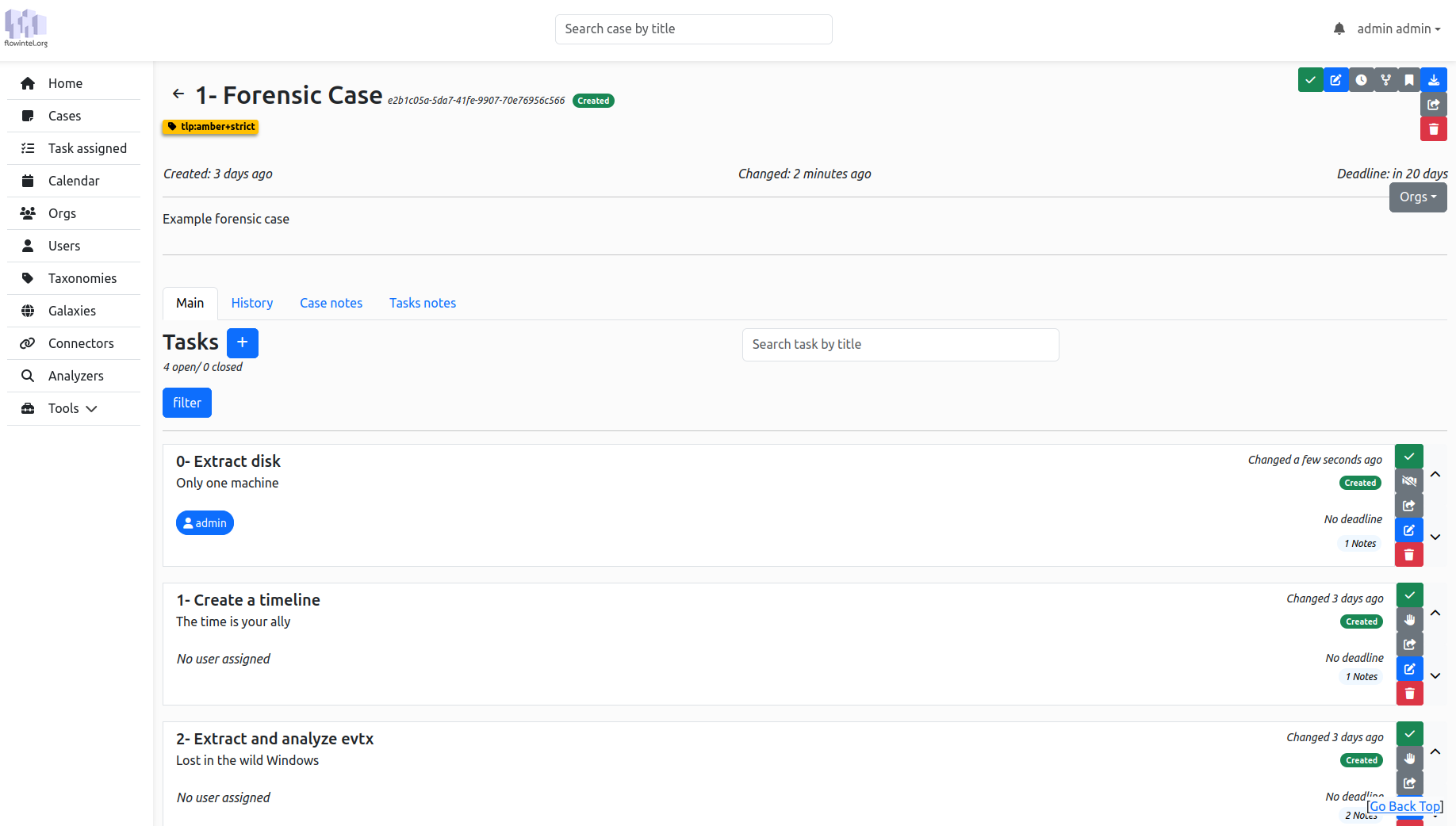
Flowintel is an open-source platform designed to assist analysts in organizing their cases and tasks. It features a range of tools and functionalities to enhance workflow efficiency.
Features
- Case and Task Management: Tailored for security analysts, enabling efficient tracking and organization.
- Rich Documentation Tools: Includes Markdown and Mermaid integration for detailed notes, with export options like PDF.
- Integration with MISP standard: Seamless connection with MISP taxonomies and MISP galaxy.
- Calendar and Notifications: Features an efficient calendar view and notifications for timely task management.
- Templating System: Provides templates for cases and tasks, creating a playbook and process repository for cybersecurity.
- Flexible Data Export: Offers modules for exporting data to platforms like MISP, AIL, and more.
- Accessible API: Exposes an API for easy interaction with FlowIntel's functionalities.
- Advanced Analysis Modules: Leverages MISP modules for automated enrichment, threat intelligence, and data correlation.
- User and Workflow Management: Supports organizational structuring, task assignments, and a queueing system for efficient workload distribution.
- Comprehensive Audit Logging: Maintains a full audit trail of all actions, ensuring transparency and compliance.
13- DAWSON
DAWSON is a free and open-source An Electronic Filing / Case Management System.
14- Emergency Management System
The Emergency Management System is an online platform developed using PHP and MySQL that facilitates the reporting and management of immediate incidents and emergency situations.
Whether it's a vehicle accident, criminal activity, or health scare, the system provides a quick and efficient way to notify and alert the appropriate authorities and responders.
Emergency Management System's Features
- Easy incident reporting through intuitive user interface
- Real-time notification system for instant authority alerts
- Automatic incident categorization and priority classification
- Geo-location mapping for precise incident positioning
- User account management with incident tracking
- Vehicle accident, criminal activity, and health emergency reporting
- PHP and MySQL powered platform
- TemplatesHub frontend design integration
- Swift responder action through automated alerts
- Status updates and report monitoring capabilities
15- FIR (Fast Incident Response)

FIR is a fast, open-source incident management platform designed for CSIRTs, CERTs, and SOCs. Built for agility and customization, it enables rapid creation, tracking, and reporting of cybersecurity incidents worldwide.
Final Note: Your Crisis-Ready Future Starts Now
Don't wait for the next emergency to expose your organization's vulnerabilities. Whether you're managing patient safety incidents, responding to cyberattacks, or coordinating disaster relief, the right incident and case management system is your lifeline to structured, efficient response.
Open-source solutions offer powerful, budget-friendly options that scale with your needs, from DFIRTrack's APT-focused precision to KANVAS's investigator-friendly interface, or comprehensive platforms like Security Onion and TheHive.
The evidence is clear: structured incident management reduces response times, prevents recurring errors, ensures compliance, and, most importantly, saves lives and resources. Your next crisis is already planning to strike. Will you be ready with the tools and processes that transform chaos into coordinated action?
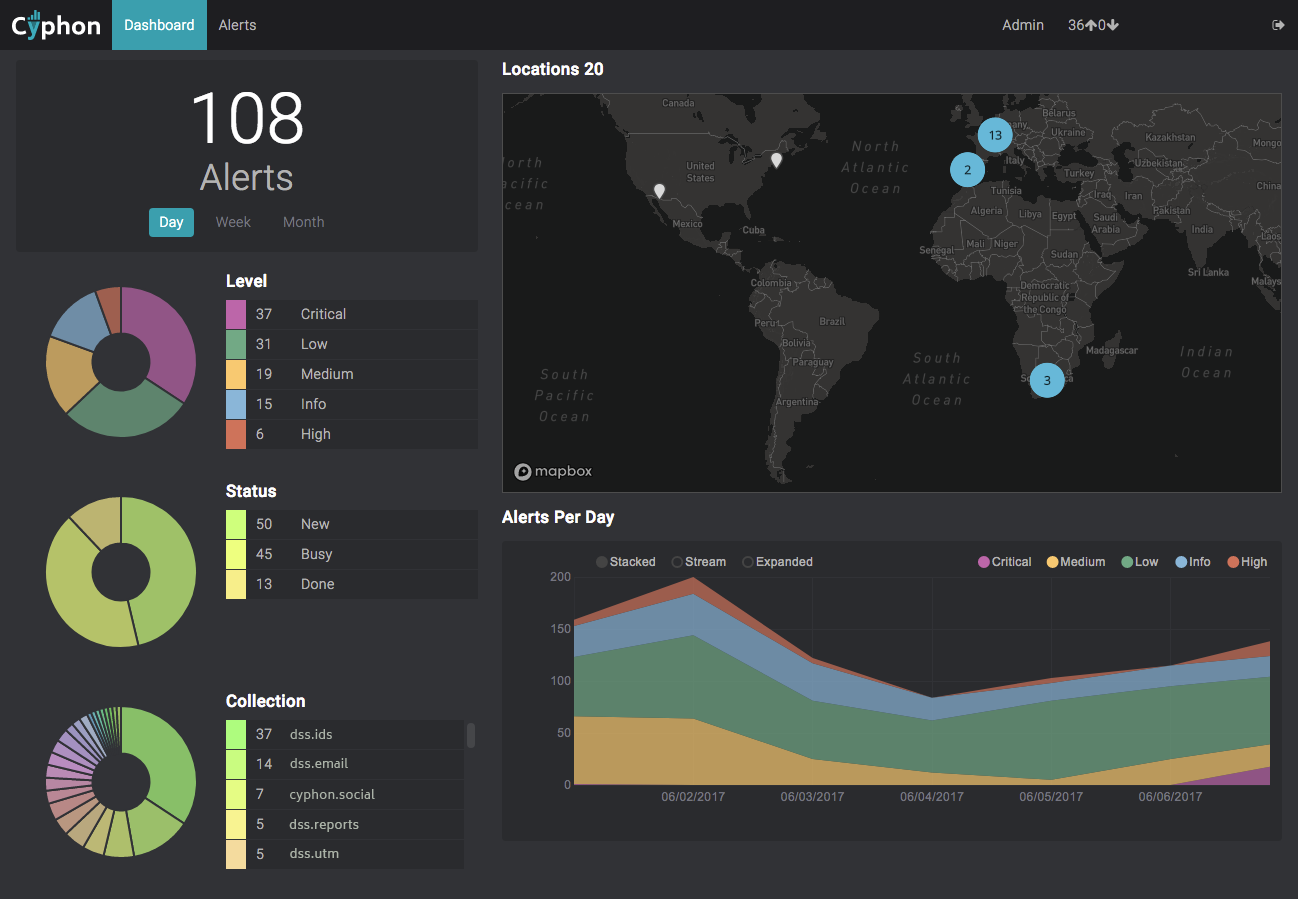
Dr. Hamza Mu, is a physician, software developer, and longtime advocate for open-source healthcare solutions.
With experience in disaster response and humanitarian missions, he believes technology should be accessible to all organizations, regardless of budget. Follow his work on open-source incident management and healthcare innovation.

